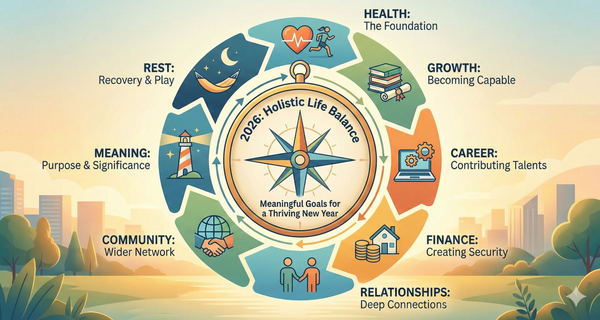How to Create a Hobby You Love

Hobbies are more than time-fillers; they’re pathways to a balanced, energized, and meaningful life. Whether you’re recovering from burnout, craving creativity, or looking for new connections, the right pastime can transform your days. This guide will help you find a hobby that fits your interests, lifestyle, and goals—so you can turn curiosity into a sustainable source of joy. Along the way, you’ll discover practical steps, new hobby ideas, and ways to build personal hobbies that truly stick.
Why Hobbies Are Essential for a Fulfilling Life
Hobbies can lower stress, lift your mood, improve cognitive health, and bring purpose to your routine. From boosting mental clarity to encouraging community and creativity, personal hobbies are one of the most effective ways to recharge and grow beyond work and daily responsibilities.
Boosts Mental Well-being
- Stress relief: Hobbies shift your focus from worries to the present moment, which can reduce anxiety and help your nervous system unwind.
- Mood elevation: Engaging activities trigger feel-good chemicals like dopamine and endorphins, improving motivation and outlook.
- Flow state: Concentrated, enjoyable tasks foster “flow,” a mental state linked to satisfaction and reduced rumination.
- Resilience: Regular immersion in something you love builds emotional bandwidth for life’s challenges.
Encourages Lifelong Learning
- Cognitive benefits: Learning new techniques, rules, or strategies sharpens memory, attention, and problem-solving.
- Growth mindset: A hobby reframes “failure” as feedback, making it easier to try, iterate, and improve.
- Adaptability: Exploring unfamiliar skills increases your comfort with change—an advantage in both personal and professional life.
Provides a Creative Outlet
- Self-expression: Art, music, writing, and making let you translate thoughts and emotions into tangible form.
- Innovation: Creative play cross-trains your brain, sparking fresh ideas you can apply to work and relationships.
- Fulfillment: Making something from nothing—whether a melody, a meal, or a garden bed—cultivates pride and purpose.
How to Discover Your Perfect Hobby
Finding a new hobby is easier with a clear process. Use these steps to choose activities that align with your interests, energy, and schedule.
Step 1: Reflect on Your Interests and Passions
- Journal prompts:
- What topics do you naturally research or talk about?
- Which activities make you lose track of time?
- What do you want more of in your life: calm, challenge, community, creativity, nature, or movement?
- Energy audit: For one week, note what leaves you energized vs. drained. Choose hobbies that match your peak energy times.
- Value alignment: If you value sustainability, try gardening or upcycling. If you value community, try team sports or local clubs.
Step 2: Explore Your Childhood Curiosities
- Nostalgia clues: Think back to what you loved at age 8–14. Drawing, building, collecting, exploring, performing? Childhood interests often point to authentic passions.
- Modern upgrades:
- Loved LEGO? Try 3D printing, woodworking, or model building.
- Loved reading fantasy? Join a book club or try creative writing.
- Loved tinkering? Experiment with electronics or Arduino projects.
Step 3: Consider Your Personality and Lifestyle
- Social preference:
- Introverts may enjoy solo pursuits like journaling, painting, or gardening.
- Extroverts may thrive in group classes, team sports, or dance.
- Time and space:
- Limited time: Choose micro-hobbies you can do in 10–20 minutes (sketching, language apps, meditation).
- Small space: Opt for compact hobbies (digital photography, knitting, origami, bodyweight workouts).
- Budget:
- Low-cost: Public library events, running, writing, bird watching, chess, hiking.
- Moderate: Pottery classes, guitar lessons, cycling gear.
- Invest-worthy: DSLR photography, home gym setup, musical instruments.
- Accessibility: Consider mobility, sensory preferences, and energy levels; adjust activities as needed to keep them enjoyable and sustainable.
Step 4: Try a Variety of New Hobby Ideas
- Micro-experiments: Sample three different hobbies over three weeks. Commit to three sessions each before deciding.
- The rule of “beginner’s grace”: Expect awkwardness for the first 3–5 sessions; momentum often kicks in after that.
- Start small: Buy basic materials or borrow equipment before upgrading.
- Connect: Join a local class, club, or online group to learn faster and stay motivated.
- Track joy and progress: Use a simple note or app to rate enjoyment (1–5) and jot down what you learned. Keep what sparks joy and momentum.
New Hobby Ideas to Spark Your Imagination
Below is a curated list of new hobby ideas, organized by category. Use it to brainstorm options and quickly find a hobby that matches your goals.
Creative Hobbies
- Drawing or painting: Start with pencil sketches or watercolor; follow beginner tutorials to build fundamentals.
- Pottery or ceramics: Great for tactile learners; try a trial class to experience the wheel.
- Creative writing: Short stories, poetry, journaling, or fan fiction; set a weekly word count to stay consistent.
- Photography: Begin with your phone; learn composition and natural lighting before investing in gear.
- Calligraphy and hand lettering: Relaxing and meditative; creates beautiful cards and gifts.
- Music production: Use beginner-friendly software to create beats or ambient tracks at home.
- Sewing or upcycling: Alter clothing, make accessories, or repurpose fabric for eco-friendly projects.
- Woodworking or carving: Start with small projects like cutting boards or spoons.
- Digital art and illustration: Learn Procreate or free tools; share your progress online for feedback.
- Filmmaking or vlogging: Document trips, tutorials, or personal stories with simple editing apps.
Physical and Outdoor Hobbies
- Hiking or trail walking: Start with local parks; gradually explore longer routes and varied terrains.
- Yoga or Pilates: Build mobility, strength, and mindfulness with short daily sessions.
- Running or cycling: Set time-based goals; join local clubs for accountability.
- Rock climbing (indoor or outdoor): Strengthens problem-solving and confidence.
- Gardening or urban balcony planting: Grow herbs, veggies, or pollinator-friendly flowers.
- Team sports: Soccer, basketball, volleyball, or pickleball for fitness and community.
- Martial arts: Try judo, Brazilian jiu-jitsu, or taekwondo for discipline and resilience.
- Swimming or rowing: Low-impact, full-body workouts ideal for longevity.
- Nature study: Bird watching, foraging, or local ecology walks to deepen your connection with the outdoors.
- Geocaching or orienteering: Turn walks into treasure hunts and navigation challenges.
Intellectual and Skill-Based Hobbies
- Learning a new language: Use spaced-repetition apps, podcasts, and language exchanges for real practice.
- Coding: Start with Python or web development; build simple projects like a personal website or data visualizations.
- Playing a musical instrument: Guitar, piano, ukulele, or violin; combine lessons with daily 15-minute practice.
- Chess or strategy games: Improve pattern recognition and strategic thinking; play online or join a club.
- Cooking or baking: Master fundamentals, explore global cuisines, and meal prep to save money.
- Electronics and microcontrollers: Build LED projects, smart sensors, or small robots with Arduino or Raspberry Pi.
- 3D printing and CAD: Design practical objects, miniatures, or prototypes.
- Investing and personal finance: Learn budgeting, index funds, and long-term planning as a practical hobby.
- Astronomy: Use binoculars or a beginner telescope; track constellations and planetary events.
- Amateur radio or emergency communications: Build technical skills and community service readiness.
Relaxing and Mindful Hobbies
- Meditation and breathwork: Five minutes a day can improve focus and reduce stress; try guided sessions to start.
- Knitting, crochet, or weaving: Repetitive motion promotes calm; create wearable or decorative pieces.
- Puzzles and brain games: Crosswords, Sudoku, jigsaw puzzles, or logic games for low-pressure stimulation.
- Tea or coffee appreciation: Explore brewing methods, tasting, and origins as a sensory ritual.
- Journaling or gratitude practice: Clarify thoughts, track growth, and cultivate positivity.
- Adult coloring or origami: Simple, portable, and soothing creative outlets.
- Bonsai or houseplant care: Mindful, slow-growth hobbies that beautify your space.
- Sound baths or ambient music listening: Pair with gentle stretching or evening wind-down routines.
- Bird watching: Learn to identify species by sight and sound; log observations to mark progress.
- Slow travel or local exploration: Treat your city like a destination with museums, markets, and walking tours.
Conclusion: Embrace Your New Hobby with Joy
The best way to find a hobby you love is to start small, stay curious, and give yourself permission to be a beginner. Hobbies nourish your mind, body, and spirit while opening doors to new skills and communities. Use the steps above to reflect on what energizes you, sample a few new hobby ideas, and shape them into personal hobbies that fit your life. Progress matters more than perfection—so choose one idea today, try it three times, and celebrate what you learn along the way. Your next favorite hobby is waiting.




